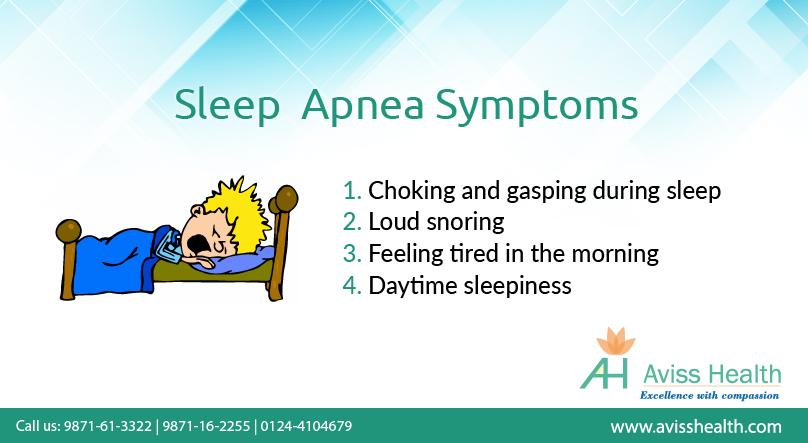Sleep Apnea Symptoms, Diagnosis and Treatment
Have you been suffering from poor sleep lately? Then, it could well be due to sleep apnea. Simply put, sleep apnea is serious sleep related disorder that occurs as a result of breathing interruption caused during sleep. If not treated on time, sleep apnea could cause the patient to experience breathing difficulty several times while sleeping. This further causes the patient’s brain and body to receive less of oxygen, which could harm them further. Read on to discover the symptoms of sleep apnea and also find out ways to diagnose as well as treat it effectively.
Sleep Apnea Symptoms
There are basically two different types of sleep apnea including OSA i.e. Obstructive Sleep Apnea and CSA or Central Sleep Apnea. Below find some of the common symptoms of sleep apnea:
- Loud and chronic snoring.
- Paused breathing followed by choking and gasping.
- Snoring is usually louder while a patient is sleeping on his/her back.
- Patients won’t snore each and every night. However, it can become louder or can occur at regular intervals with passage of time.
- Fighting sleepiness during daytime.
- Patient falls quickly asleep during daytime when they aren’t very active.
- Morning headaches and mood swings.
- Inability to concentrate and memory issues.
- Wakes up to urinate on a frequent basis.
- Kids suffering from sleep apnea could get angry, hyperactive and hostile and show poor performance in the school.
- Breathing through mouth instead of nose.
Diagnosis and Treatment
Sleep apnea if left untreated could cause severe health problems such as stroke, diabetes, high blood pressure, depression, headaches, heart failure and attacks. This is precisely why it is important to diagnose and treat sleep apnea effectively in patients. However, individuals suffering from this sleep disorder may not even realize that they’re suffering from sleep apnea. As a result, it is important that they consult a qualified physician who’ll further direct them to undertake a polysomnogram or sleep study. This study records the patient’s physical activities during sleep and further records the data in the electronic format. The sleep specialist will further study the data to diagnose the problem. After a patient is diagnosed with sleep apnea, the sleep expert may ask him/her to incorporate changes into their lifestyle. Additionally, the physician may also suggest the patient to use a CPAP device that is fit over a patient’s mouth or nose. Other options available with sleep apnea patients include surgery, oral appliances, Uvulopalatopharyngoplasty and nasal surgery.
For effective treatment of sleep Apnea consult Dr. Himanshu Garg of Aviss Health, the premier Sleep Clinic in Delhi/ Gurugram.

